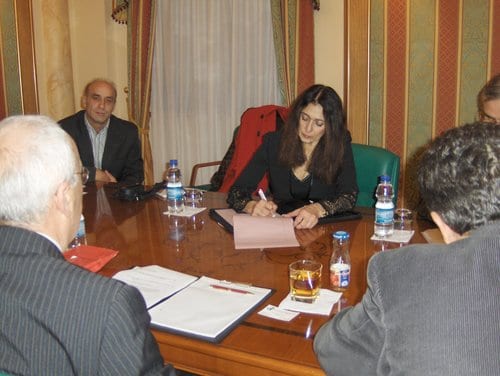Our Mission
persuade responsible officials to release any information they have concerning missing persons
reform national laws to obtain justice for women with families to support
establish support mechanisms to provide long-term emotional healing for grieving family members
“The overall goal of society is to exist in peace, which is only attainable when truthful knowledge is afforded to everyone”
Jane Durgom-Powers, Founder
Long Term
Our objectives are to ensure surviving family members have legal, judicial standing, access to family funds, and support mechanisms for social and economic family requirements. Our goal is to introduce legal reforms that address missing individuals from a family perspective.
Learn more about our work
Family Identification Program
Families of the Missing created the Family Identification Program as a foundation building block for Family Reunification. The purpose is to evaluate the families’ situation, and how we are able to support them. We meet with families by either inviting them to seminars to be interviewed, or go to their homes upon invitation.
In order to help, we need to understand the basics:
Next, we ensure the family feels safe and their basic needs are met.
If not, we connect with other NGOs and governments to provide counseling, healthcare, and legal counsel.
We then establish if there’s been a change in the head of household.
Often in developing countries if a husband/father goes missing, his wife isn’t equipped or allowed to handle finances. In order secure a steady income for herself and family, we partner with her to determine where her skill set lies.
The Family Identification Program also allows us to capture names of surviving families, and the missing.
Their names are entered into double bind databases in order to protect their identities. With this database, we’re able to increase chances of successful Family Reunification.

The goal of this program is to stabilize families emotionally, financially and logistically,
while gathering information that leads to truth and reunification.
FOM Family Identification Program
Families of the Missing, (FOM), family identification program is the activity involving establishing if a certain person is a family member of a missing person. This program involves interviewing potential families to establish if they are actually families of missing persons. The identification program is undertaken in different dimensions, among them: Holding a seminar were we invite potential families of missing persons to interview them one by one; and the other method is through field work door to door identification upon the invitation and request from the families.
Under this program, once we identify these families, we refer them to join the family associations which FOM has helped to provide for them. Further, we establish their social needs (problems); if their needs are education for their children, then we donate education materials such as exercise books & study books. These materials are accessed through our well-wishers.
Through this identification program, we give counsel or counselling by encouraging them to be strong and giving them hope. In an event that they do not have legal papers, we advise them to seek the assistance of government authorities through mandated government departments, which looks into their plight where legal status is concerned. If the problem is health related, we engage family association members to help refer them to health institutions, which have been mandated to help these families access health services.
FOM, family identification program helps us to capture the names of surviving families and their missing family members. It is, therefore, considered as a life blood of FOM operations. Through these efforts it gives possibilities of family reunification. It is also the basis for FOM publications as it generates news, which helps to inform the international community.
Lastly, the identification program is also used as learning process, for FOM to develop project proposals based on the actual situational analysis pertaining on the ground or in the field. For example, FOM Africa office recently submitted a project proposal for Basic Skills training, which was formulated as a result of requests from families that they need to be trained in basic skills to aid in their survival.
We rely on contributions from charitable foundations and private individuals. Your contribution will help to support FOM‘s role as an advocate, link, and information archive for family associations. Please click here if you would like to make a tax-deductible contribution. Thank you!
